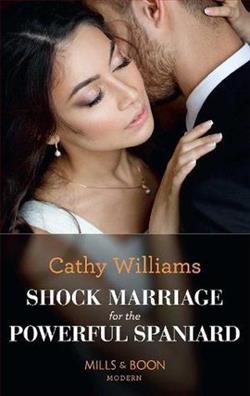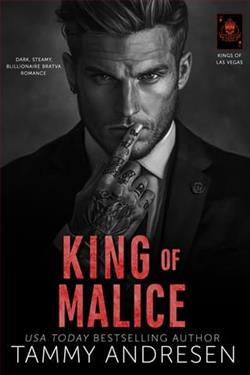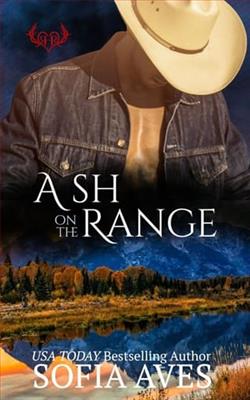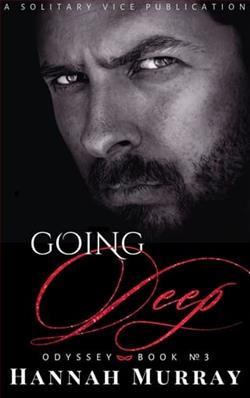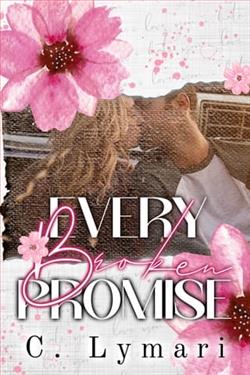Page 34 of The Bear's Heart
Now we’d been disturbed, there was no point in staying inside the round hut with the blank scrying glass. Eigr and I followed Merlin out into the spring sunshine, and he walked away from us back toward the Hall.
When he’d gone, we exchanged conspiratorial smiles, and Eigr put her hand on my shoulder. “Perhaps I was wrong. You are a woman of many talents. This skill of yours is most useful and should be shared. Perhaps you’re even clever enough to avoid what the fates have in store for you.” She paused. “I think you saw something that can help you.”
I turned to look out over the white-capped waves. Beneath the cliffs, the sound of them crashing on the shingle beach thundered, and I could taste the salt in the air. “I don’t believe in fate,” I said with deliberation. “Like my husband, I believe a person makes their own future.”
Eigr shook her head, her eyes shifting from excited to sad in an instant. “My scrying glass never lies, but the future can be interpreted in different ways.” She sighed, clasping her hands together as though she were wringing them. “When Arthur was just a boy, I looked into the glass and was shown what lay ahead if he were to follow the path his father wished to carve for him.” She looked me in the eye. “I saw you too, a little girl in a blood red coat running toward a windswept stone tower on a grey winter’s day.” She put both hands on my arm. “The world that gave you birth is far away, but you will see it again, one day.”
Goosepimples prickled my skin. How could she know where I’d come from, and that I’d been wearing a red coat the first time I’d met Merlin, back in my world? Did she know what I’d just seen myself? And was she right when she said I’d go back?
Curiosity held me. The part of me that was on its way to becoming a believer wanted to know what this woman had foreseen, although another part, buried deeper than ever, cried out that this was nonsense. I couldn’t help myself. “What else have you seen?” I asked.
A faint smile curved her mouth. She thought she had me now. “That there were two paths possible for my son.” Her voice was low and melodious, as though her words were a mere story. “He could enter the church as many second sons do, and forge for himself a life of devotion to God, a long and worthy life, ending at a great age, in his own bed.” She paused, and her eyes glittered with suppressed anger. “Or he could follow the path his father intended, the one Merlin swore he was born to follow.” She said Merlin’s name with contempt. “If he chose the second path, he would meet you.” Strands of her long white hair whipped across her face. “A woman veiled in blood. Choosing this road would bring him, in his prime, to an end on a far-off, blood-soaked battlefield. My scrying glass was drenched in the blood that will flow.”
Her blue eyes challenged me to deny this. How could I, though, when I’d seen that same battlefield in the glass just now. Had she seen it with me?
I was at a loss for what to say. How could I placate her when the stories I knew about my husband corroborated what she was predicting, and I had seen? But I was a free agent. I wasn’t the Guinevere of legend going unwittingly to my fate, taking a lover and betraying her king to bring the whole of Britain to war. I was Guinevere Fry, librarian, well-read, clever, and above all, possessor of all the foreknowledge the legends could give me.
I put my hand on hers. “I won’t let that happen. If I know it’s coming, I can avert it. Nothing’s written in stone. The future can be rewritten. Even a prophecy may not come to be.”
But was I right? I’d seen it in her glass just as she had. Could the future be rewritten when it was really the past?
Chapter Thirteen
We rode awayfrom Din Tagel on a bright spring morning. Below the fortress waves crashed onto the shingle beach, and above our heads gulls bent their backs against the never ending wind, to dive shrieking to their cliff-side roosts. I was glad to leave the fortress behind, despite the common ground I’d eventually found with Eigr. However much she’d considered me useful, maybe even come to like me, she would never change her mind about what she’d seen in her scrying glass. For her, I was the woman who would bring doom upon her beloved son.
At the villa where we’d left the orphan children of Caerwysg, we found that baths and over a week of good food had wrought huge changes. All five of them had gained color in their filled-out cheeks, and the haunted look had left them. They were still thin, but their hair, which someone had cut short to help rid them of their lice, was clean. Nola turned out to be a dark strawberry blonde. It made me wonder if she might have been the offspring of a raiding Saxon.
At some expense, Arthur commandeered a wagon for the children, which slowed our journey somewhat, but the weather held, and we had time on our side. On the pleasant return journey, the children, now alert enough to enjoy the sights, began to behave like real children and not terrified beggars. For part of the time I rode in the wagon with them, Alezan tied on behind, so that I could talk to the children, in particular Nola, who’d taken a shine to me. I kept them amused by retelling the timeless fairy stories my mother had told me as a child– Little Red Riding Hood, Hansel and Gretel, Cinderella, Rapunzel. Nola made me repeat Goldilocks and the Three Bears endlessly.
At Caer Pensa we took the children to the King’s House, where Arthur, good-humoredly and at my urging, had decreed they should stay and be educated in a trade. Arthur called the master craftsmen before us and asked each to take responsibility for a child and introduce them slowly to their new tasks. Even the smallest boy was given the job of sweeping the workshop of his new master.
“They’re not slaves,” I told the masters. “And you’re not to treat them as such. They’re your apprentices, and you should be teaching them your trade. We shall come back this way later this summer to check the children are being treated well. And the steward of the King’s House will report to me if it comes to his ears that you’re treating them as anything other than apprentices.”
Round-eyed, the children looked on as we decided their future, but at least now their eyes were no longer sunken in half-starved faces.
I took Nola to one side. “I wish I could take you with me, but it would be selfish of me. You belong with your friends. They’re your family. But I will come back to see you. I promise.”
She regarded me in solemn silence.
Bending down, I put my arms around her, a lump rising in my throat. It was a wrench to have to say goodbye, but a military fortress was no place for her after all she’d suffered. For a moment her little body stiffly resisted my embrace, then she softened, and her thin arms went around my neck and hugged me back.
Leaving Caer Pensa behind us, we returned to Din Cadan for the summer. My short period of experiencing Roman comforts was at an end.
In every farm we passed, thanks to the continued fine weather, the farmers were ploughing their small square fields with pairs of oxen. When compared with deep modern ploughing, the shallow furrows their primitive ploughs made seemed like mere scratches on the land. It was the same in the farms below Din Cadan, where out in the grazing lands, lambs skipped jauntily after their mothers, calves followed the cows, and the wandering horse herds had foals at foot already. The forest had gained a thick blush of green, transforming its shadowy darkness, and everywhere buds were bursting forth on branches, as if the land were springing into life in one great overnight leap.
We arrived at Din Cadan to find the whole fortress preparing for a spring celebration. Men brought wagons of greenery and May blossom from the farms and forest below and festooned not just the inside of the great hall but the outside too. Every man, woman and child took part in the construction of two huge bonfires in the clear space in front of the Hall.
“Beltane,” Merlin explained. “A traditional festival even the Christian God can’t wipe out.” Not for the first time I wondered about his religious beliefs. From the way he spoke, I had the impression he was a dispassionate observer of their customs.
He gestured at the houses inside the fortress. “This was a community of farmers before it was ever a community of warriors. Before these farmers began paying lip service to Christianity, they worshipped the old gods who gave their lands and animals– and their women– fertility. The Christian God isn’t the god of farmers. He’s the god of monks and priests in monasteries and abbeys. These people still believe the old gods bring life back to their world after the living death of winter. It’s little wonder they cling to their ancestors’ traditions. They say their prayers once a week in their little church in the village, but daily they venerate the old gods in their homes. And at the feast of Beltane they’ll drive some of their cattle symbolically between these bonfires at nightfall.”
This surprised me. “I’d always imagined everyone here was Christian. Arthur did tell me they still believed the Tor was the entrance to Annwfn, though. And I’ve seen the odd thing that’s made me think some of them still keep their old beliefs. But you make this sound as though they all do.”
He smiled wryly. “There’s a fine veneer of Christianity, but they hedge their bets. Every one of them will be at the Beltane fires, fearing that if they’re not, there’ll be no fertility bestowed on them this year.”
“And you?” I said. “What do you believe?”
He was a clever man, a man who’d seen the future, however briefly. A man who might question any beliefs that had no proof.








